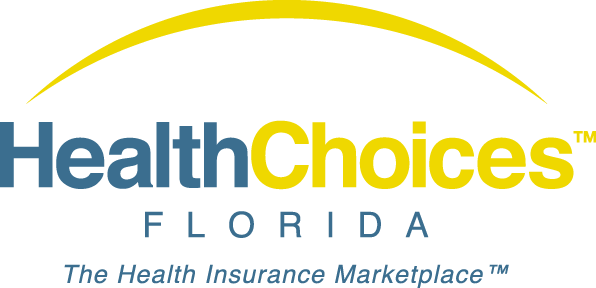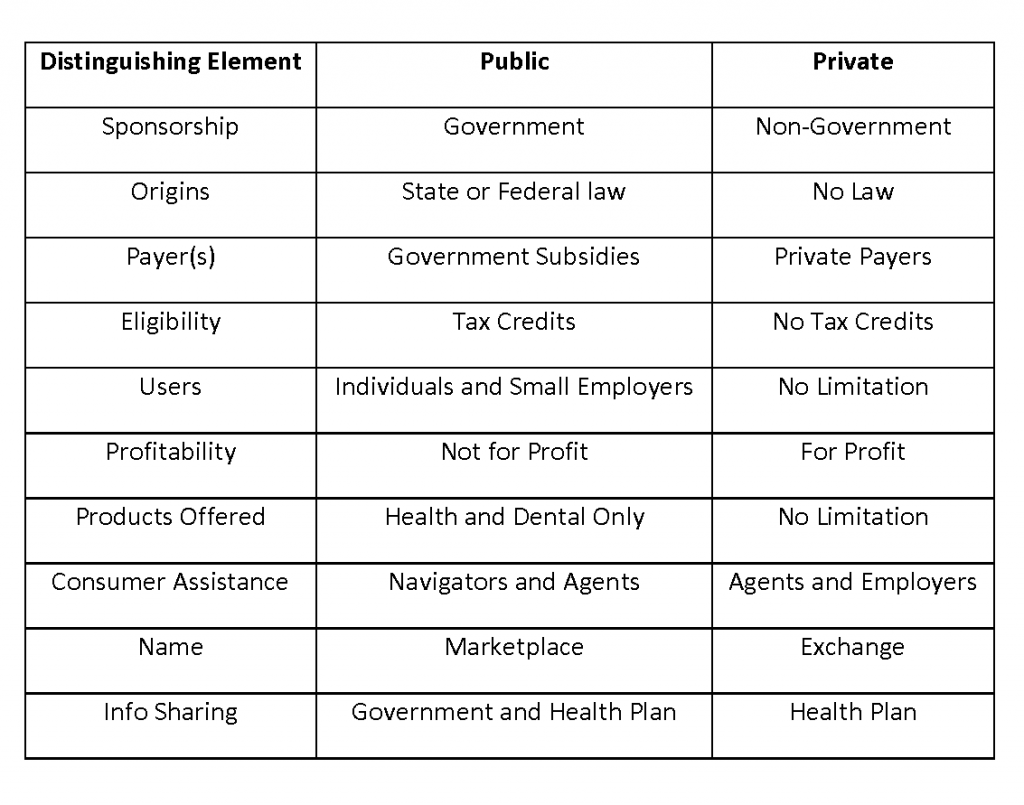Almost one year ago, I wrote a blog titled “What’s in a brand?” In it, I reviewed Florida Health Choices’ first use of the tagline “Health Insurance Marketplace,” the reason it was chosen as our official slogan, and our efforts to develop and protect the brand. A few days later, on January 30, 2015, attorneys…

What the Heck is a Public vs. Private Exchange?
Recently I wrote about health insurance exchanges and after introducing the many different kinds that any one consumer or business may encounter, I was asked to dive a little deeper and differentiate between public and private exchanges.
There is no clear winner when it comes to defining an “exchange” to begin with. One resource states it is “a place for buying and selling, typically open only to members.” Another says it’s “a store or shop specializing in merchandise usually of a particular type.” So it’s not surprising that further differentiation is even more difficult. Google “public or private exchange” and you will find no consensus among the various attempts to define Exchanges as public or private.
Current definitions suggest that the key differentiator between private and public is about who is running the exchange. While that may be a good start, I think it is more than just sponsorship that defines an exchange.
There are numerous ways to draw the distinction between public and private exchanges so I’ll give you a few examples of the elements that other writers have used:
Is it the name? No. Florida Health Choices adopted the term “Marketplace” long before the federal government did and still uses it today. State operated public exchanges often don’t use the term “Marketplace” with Nevada’s Silver State Exchange being just one example.
Is it the products? No, although the federally operated marketplace has chosen to restrict products to health and dental for now. State operated public exchanges can make other offerings available if they choose to.
Is it the users? No, individuals and small employers may choose to forgo the public exchange and participate in a private exchange.
In my opinion the definition of a public exchange is a combination of two distinguishing elements and a sub-type. The key defining elements are the origin and the payers.
Public Exchange: A place for buying and selling health insurance that is created by law and providing government subsidies.
The sub-type reaches into a specific federal law titled the Patient Protection and Affordable Care Act (PPACA) and expands the definition with the inclusion of tax credits and information sharing elements:
PPACA Exchange: A place for buying and selling health insurance that is provided for in federal law, with government subsidies in the form of tax credits, and shares information with the federal government.
Turning to the definition of a private exchange, once again, there are sub-types that may also be defined and there is no clear consensus. The most frequent distinctions drawn between private exchanges are the type of insurance, sponsors or the users.
By insurance type: Individual, Small Group, Large Group, Self-Insured
By sponsor type: Insurer/Carrier; Broker/Consultant, Technology, and Other
By user type: Employer, Broker/Agent, Association, and Other
I could go on and on about the different sub-types but let’s at least settle on a definition of Private Exchange here —
Private Exchange: A place for buying and selling health insurance that does not meet the definition of Public Exchange.
About The Author: Rose Naff currently serves as CEO of Florida Health Choices, Inc. and is building Florida’s Health Insurance Marketplace. Launched in 2014, the Marketplace can fill gaps in other healthcare coverage while additional phases are being built. Go to www.myfloridachoices.org to learn more.


